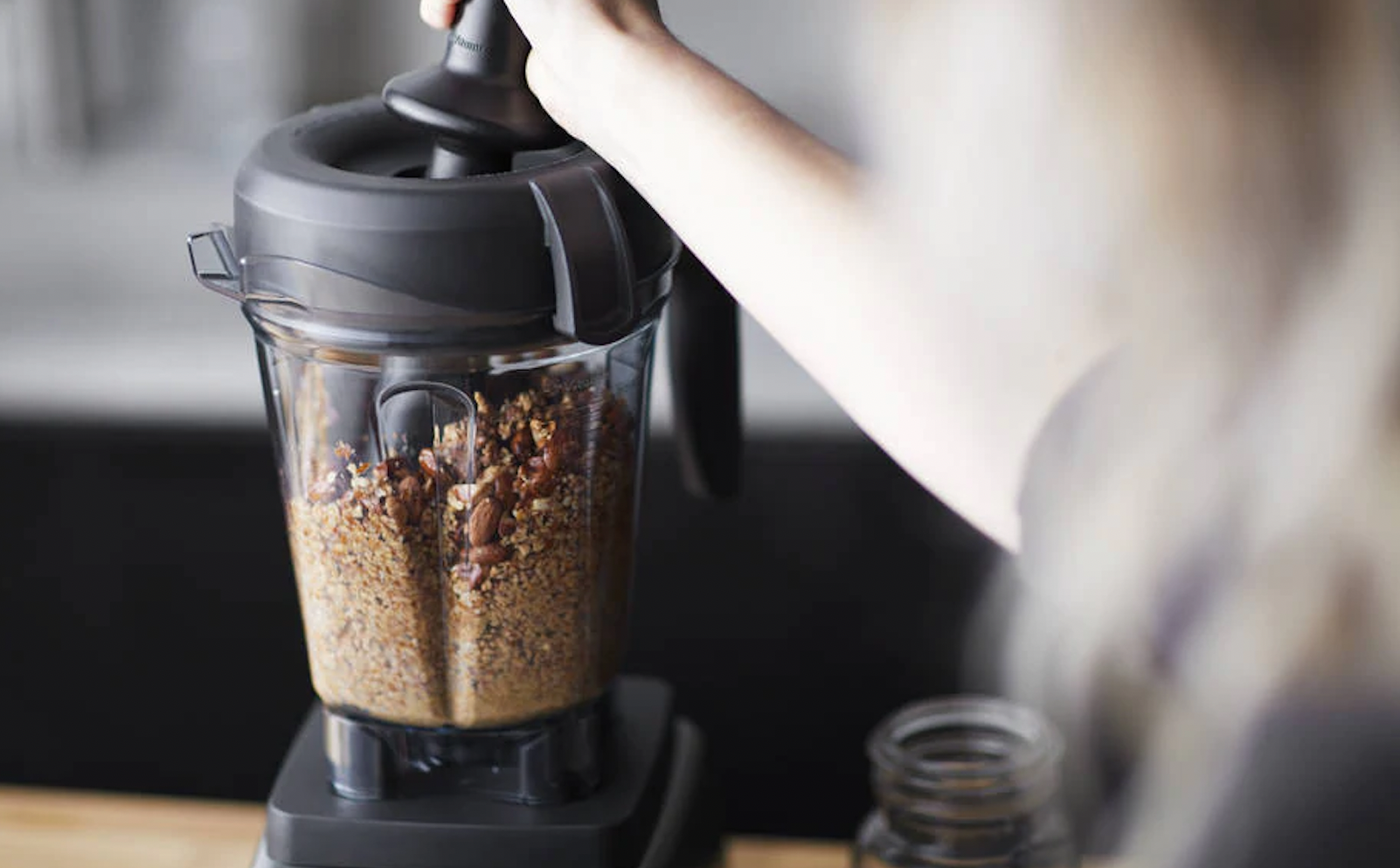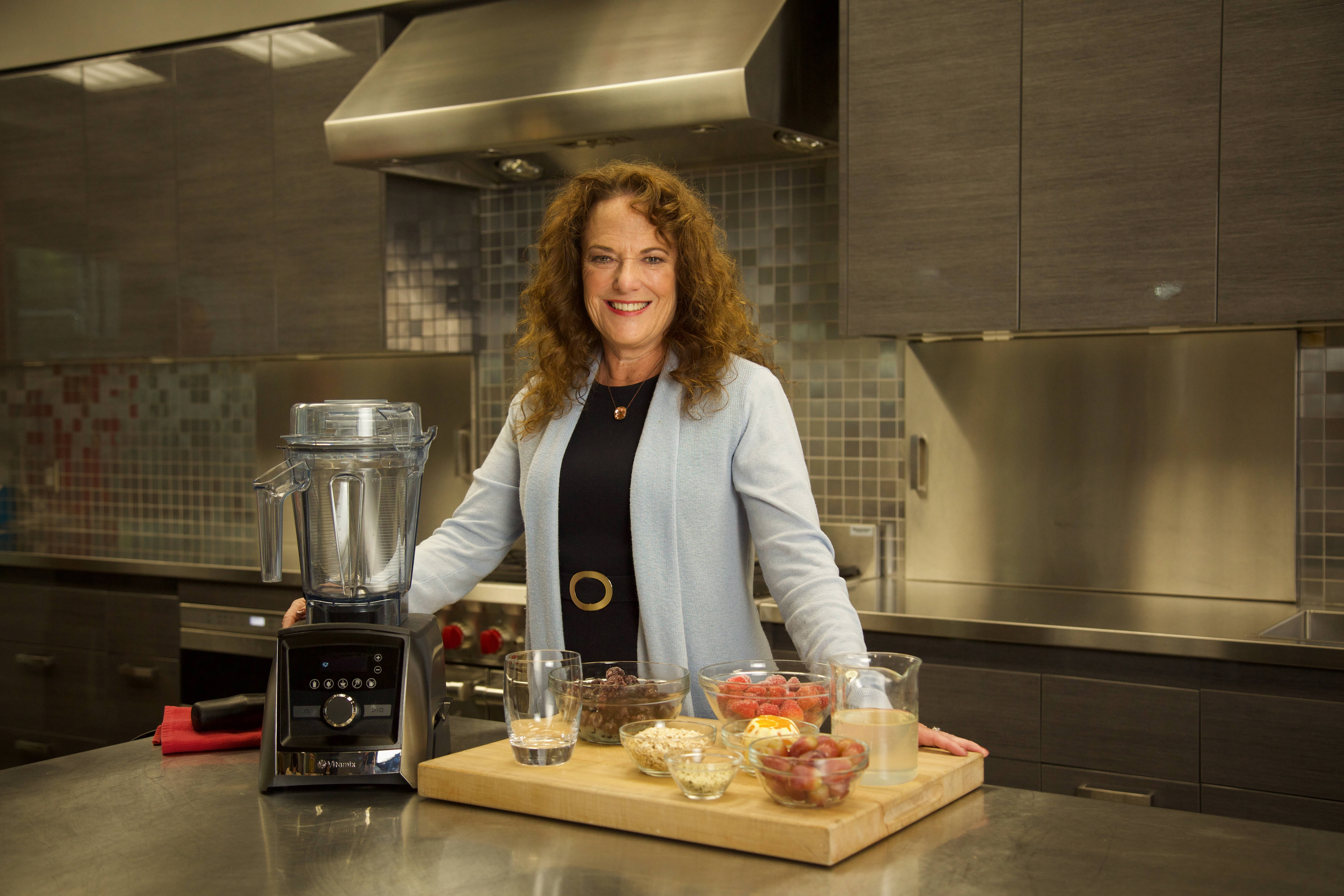
Vitamix is demonstrating that the priorities honed over four generations by a family-owned company from Ohio can resonate with consumers in China. Photo Credit: Vitamix
Jodi Berg, president and CEO of US blender company Vitamix, has a recipe for success in China. The company’s flagship product may be less well-known in the world’s second-biggest consumer market, but the message it carries about healthy eating matters to everyone.
“My great-grandfather, William G. ‘Papa’ Barnard, lost his wife in the global Spanish flu pandemic,” Berg told Alizila in an exclusive interview. “He became convinced that a healthy diet could boost immune systems and improve quality of life, so he founded the company in 1921 to promote healthier eating.”
As it celebrates its 100th anniversary, Vitamix is demonstrating that the priorities honed over four generations by a family-owned company from Ohio can resonate with consumers in China.
“The Chinese consumer really understands whole foods,” said Berg. “What they may not yet realize is that Vitamix owners on average consume twice as many fresh fruit and vegetables as the typical household.”
Vitamix began to revamp its direct-to-consumer approach for the Chinese retail market in 2019, working with Hangzhou-headquartered Alibaba Group to raise awareness about its products. Household sales have soared: it has achieved more in the past year than it had forecast for two or three – including an Alibaba “Users’ Favorite Product” award.
The company is now ramping up its offering in China for Alibaba’s 11.11 Global Shopping Festival, the world’s largest physical and online shopping gala, which attracted 800 million shoppers and realized US$75 billion in sales last year — including US$5.4 billion for US brands.
Companies like Vitamix are benefiting from a growing appetite for healthier lifestyles that has been taking hold across China. According to consultancy McKinsey, some 67% of Chinese consumers put a higher priority on wellness than they did two or three years ago. Nutrition accounted for a higher proportion of wellness spending in China than in the other five markets in McKinsey’s survey.



Blending In
Health and wellness are universal concepts, but culinary culture is intensely local. In China, traditional recipes are as revered as they are varied — preparation methods differ between neighboring provinces and are very different from those used in the West.
As a result, bringing Vitamix’s products to a market as large and diverse as China’s requires a high degree of localization. The company believes that the best way to be “hyper-local” is to show how its blenders complement the many varieties of Chinese cuisine — and meet the needs of the country’s increasingly health-conscious citizens.
“Sell the sizzle, not the steak,” advised US sales and marketing pioneer Elmer Wheeler in the 1920s — possibly the first influencer and an early adopter of video for promotions. He understood that it’s not about the product so much as the benefits it can deliver to the consumer. For Vitamix, that means the promise of convenient and healthier food. From grinding almond milk or pureeing baby food to preparing black sesame soup or homemade tofu, Vitamix blenders open up possibilities for home cooks.
In selling the Vitamix lifestyle to consumers in China, the company is drawing on its history of embracing new marketing tools. When he approached the local TV station for airtime to promote Vitamix in the US in 1949, Papa Barnard invented what is now known as the infomercial. Today, Alibaba’s livestreaming capabilities provide a new way of engaging directly with the next generation of consumers.
Recipe demonstrations for a wide range of Chinese cuisines helped to differentiate the Vitamix brand from its competition.
“Localization entails teaching people how to use their Vitamix through livestreamed recipe sessions by influencers familiar to Chinese consumers,” said Jacob Cooke, CEO and co-founder of WPIC Marketing and Technologies. WPIC is an e-commerce agency that specializes in introducing global brands to Asian markets, leveraging Alibaba’s rich consumer data to fine-tune marketing strategies in China.
Case in point, the company has been working with WPIC and Alibaba since August to plan its content and sales strategy for the 11.11 shopping festival. These include special gifts-with-purchase designed to enrich customers’ experience and satisfaction. One such gift, a Vitamix-branded lunch bag, follows extensive market research to complement customers’ culinary habits and further differentiate Vitamix from its competition.
In addition, 11.11 partnerships with well-known Chinese brands and livestreamed demonstrations by top influencers discussing healthy lifestyle concepts will help to further localize the brand.
Livestreaming Community
Alibaba’s status as China’s largest e-commerce platform made it a natural fit for Vitamix’s efforts to localize the product by educating and inspiring new customers.
“Livestreamed content not only educates consumers on how to gain the full benefits of their blender, but also builds trust in the brand,” said Lisa Klein, vice president of commercial and international household sales at Vitamix. “Alibaba’s livestreaming tools are very strong, and we’re doing between six and nine hours a week on their platform, which is building brand awareness.”
“We’re also building trust: Alibaba essentially governs the transaction between brand and consumer, building consumer confidence with a 30-day return policy, which promotes risk-free shopping,” said Klein.
Product demonstrations have served Vitamix well since its earliest days, and Berg sees this focus on customer engagement as key to its success in China.
“The difference was we were teaching people how to use it — we were developing a relationship with people,” said Berg. “We give people vitality in life by helping them eat food differently and think about food differently.”
Vitamix is also learning from its experience with Chinese consumers, drawing on insights from Alibaba and WPIC and direct feedback from customers. Globally, Vitamix has created an international following of enthusiasts by sharing its whole-food recipes and inviting feedback, and insights from those users inform new techniques and features.
“As Vitamix chefs work on recipes based on feedback from WPIC, Chinese cuisine is informing our understanding of how food fits together,” said Berg.
“We’ve built a community of people all over the world who work alongside us to make sure that the products that we’re building are the ones that they need for them to achieve what they need in their life,” she added.
Vitamix’s founder Papa Barnard may not have dreamed that his product would one day sell in markets as far away as China — but he would certainly have recognized the importance of livestreamed recipe demonstrations in connecting Chinese consumers with a family-owned company from Ohio.




